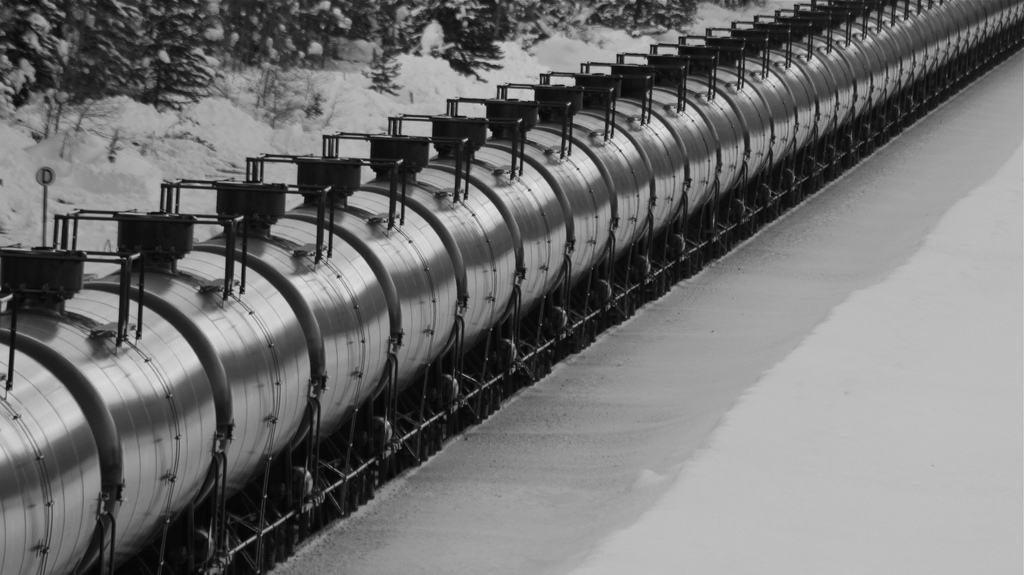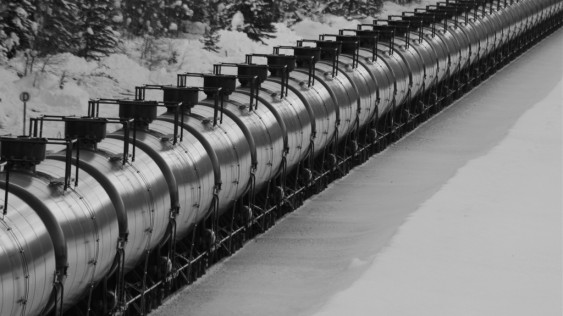In the wake of a historic agreement at this month’s Paris Climate Change Conference, the United States is expected to take the significantly regressive step of lifting a 40-year ban on crude oil exports, and the Northwest will find itself directly in the path of the oil industry’s plans to dramatically increase crude oil production for overseas export.
Since 1975, the Energy Policy and Conservation Act has banned the export of domestic crude oil supplies, with some exemptions for certain classifications of oil products. Congress passed the act after an oil embargo by the Organization of Arab Petroleum Exporting Countries (OAPEC) against the US, Canada, and three other nations caused the per-barrel price of oil to quadruple between October 1973 and March of the following year. In pursuit of energy independence for the US, the act created petroleum reserves, extended oil price controls, and mandated fuel economy standards.
In recent years, oil industry lobbyists like the American Petroleum Institute have been aggressively chipping away at the oil export ban. Consistent lobbying efforts targeted the Bureau of Industry and Security (BIS), which has quietly granted crude oil export exemptions to select oil companies through rulings not disclosed to the public.
In February, the environmental law firm Earthjustice filed a formal Freedom of Information Act (FOIA) request on behalf of Sightline, asking the BIS to release information about its deals with oil exporters. In order to keep those exemptions secret, the Bureau invoked the Export Administration Act of 1979, which allows for the withholding of certain types of export licensing information. That regulation lapsed in 2001, but George W. Bush renewed it by executive order, and it has been renewed annually since that time.
Our FOIA request was met with silence, so in June we sued the Obama Administration. We then received some documents in late July and mid-October of 2015. The documents indicate that the Bureau was reviewing reports prepared by the oil industry, and redacted emails suggest meetings with oil industry officials. The documents also note that the Bureau’s 2014 decisions, including new commodity codes affecting how petroleum products are classified, would notably increase exports of condensate (condensate is a lightweight grade of oil that the industry has worked hard to exempt from the ban).
A March 2014 poll by Reuters found that nearly 60 percent of Americans support the restriction on oil exports. That number increases to 72 percent when the restriction protects US gas prices. Yet now it seems that the Bureau will no longer need to issue secret exemptions to the ban because the Obama administration and Congress are preparing to lift the ban entirely as part of a budget deal announced yesterday evening.
Lifting the ban will increase crude oil exports with steep costs to average Americans, including loss of public lands to large-scale drilling, increased carbon pollution in our already struggling climate, and greater numbers of dangerous oil trains moving through our communities. And if the oil industry can bypass domestic refineries, the move may also threaten the livelihoods of the union workers who currently process America’s crude oil into useable consumer products.
For some regions of the country, including the Gulf Coast and the Pacific Northwest, it could mean an even larger flood of crude oil moved by train or pipeline, increasing the risks of local fires and spills. The Pacific Northwest has become a target for fossil fuel projects, including oil, coal, and fracked natural gas, primarily because it is cheaper to ship to Asia from the Northwest than from other regions.
If the oil export ban is lifted, it will become even more important for the Northwest to stand strong against the oil industry as the Thin Green Line.










Joyce Curry
It’s just like “Wacka Mole”, they just keep coming back!!!! The worse of the” Deadly Sins” is GREED!!! I sure hope the Tribes find out about this tricky move.
qmmayer
I would love to better understand the economics of this issue. I am trying to work out how exactly the export ban is likely to lead to more drilling in the U.S. (API, 800K barrels per day under one scenario) and/or more drilling worldwide. Does the increase in U.S. drilling primarily relate to refinery capacity? From what I’ve read, the U.S. has a lot of heavy crude refinery capacity but less for for light crude, so refineries currently can get a better price for the light crude. And my understanding is that the shale oil is light crude — so lifting the ban potentially assists in reviving the shale oil boom? Does this come at the expense of heavy crude drilling elsewhere? I am hoping to avoid slogging through API’s report . . .
Norm Cimon
@qmmayer – The lifting of the export ban will lead to more drilling, not now but once the price – currently below $40/barrel – starts back up. The best estimate I’ve seen is somewhere between $60-$70/barrel for it to be cost effective for oil from the Bakken formation in the Northern Plains.
The reason for the current price is that Saudi Arabia has been dumping oil onto the market as have other member states of OPEC. They did that to try to regain control of the market by pushing US drillers beyond the margin they need to make money.
With the export ban lifted, producers will be gearing up to export once the price does rise. That’s guaranteed. Saudi Arabia needs a price of about $100/barrel to meet it’s budgetary needs. That budget is almost wholly dependent on oil sales. The International Monetary Fund, which tracks such things, estimates that Saudi Arabia can keep dumping oil for 4-5 years at most. After that their capital reserves, which were three quarters of a trillion US dollars, will be drained and they’ll be in deficit.
Little of this has to do with “classic” economics. It’s about market power, who holds it, how they use it, and who gets pushed out. That’s the realm of political economy, which often diverges significantly from market theory.
Staci
The lifting of the oil ban is going to have so many positive outcomes for the US.
The Empire Strikes Back.